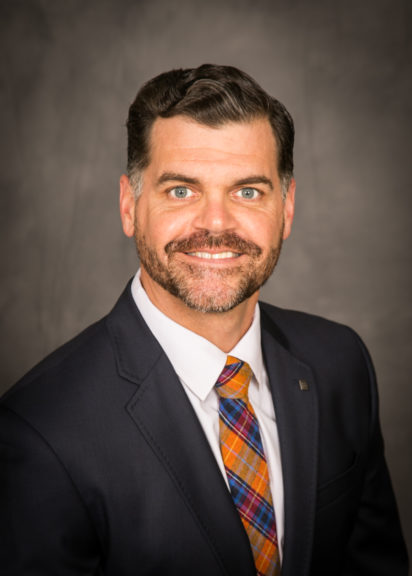The state of California has awarded CHOC, in partnership with UC Irvine and Chapman University, a $2.3-million grant to screen patients for adverse childhood experiences (ACEs) and childhood unpredictability to assess how such high-stress events affect the brain and put kids at increased risk of later developing physical and mental illnesses.
In a novel aspect of the study, researchers also will determine if there are epigenetic markers on the DNA that predict whether any given child will be more adversely affected than another.
The team is among four awardees statewide that have been given a total of $9 million to assess which children are most vulnerable to the effects of ACEs and unpredictability in the home environment, and to design medical care to improve the outcomes for this particular group of patients – a model known as “precision medicine,” which eschews a one-therapy-fits-all approach to healthcare.
“The whole concept here is that kids who grow up in environments with frequent exposures to toxic levels of stress can have all kinds of internal things happen in their bodies related to prolonged or extensive stress hormone response – their brains can develop differently, and when they become adults, research has shown that they have a higher risk of developing medical conditions such as heart disease, asthma and cancer, among other physical diseases, as well as mental disorders,” says Dr. Charles Golden, a co-investigator on the study and executive medical director of the CHOC Primary Care Network (PCN).

The California Governor’s Office of Planning & Research, in partnership with the Office of the California Surgeon General, awarded the three-year research project as part of the California Initiative to Advance Precision Medicine (CIAPM). The other three recipients were Children’s Hospital Los Angeles, University of California, San Francisco, and Loma Linda University.
The CHOC-UCI-Chapman research project begins in July 2021, with screening expected to start in CHOC PCN clinics by November 2021. Lead principal investigator on the project is Dr. Tallie Baram, Bren Distinguished Professor and director of the Conte Center at UCI. The National Institute of Mental Health-funded Conte Center also addresses how early-life experiences influence the brain and contribute to mental illnesses.
Results of the study are expected by the end of 2024, says Laura Glynn, PhD, a Professor of Psychology and Associate Dean for Research at Chapman University and one of the principal investigators on the study.
CHOC’s PCN has been screening its Medi-Cal patient population for ACEs since February 2020, and expanded such screening – using a tool called PEARLS, for Pediatric ACEs and Related Life Events Screener – to all patients in November 2020, Dr. Golden says.
The 17-question PEARLS tool screens for such experiences as a parent being jailed, the prevalence of alcohol or drug abuse in the household, and whether the child has been a victim of violence in his or her neighborhood, in the community at large, or at school.
“This existing infrastructure at CHOC was a very important part of the application for this grant,” Glynn says.
The CHOC-UCI-Chapman study, “Using Precision Medicine to Tackle Impacts of Adverse and Unpredictable Experiences on Children’s Neurodevelopment,” will dig deeper than standard PEARLS screening.
The children will be asked an additional five questions to assess exposure to unpredictability in the social, emotional, and physical domains. Such questions are an attempt by researchers to develop an instrument that will predict this population of kids’ resilience to, or risk of developing, physical or mental illnesses. Children from low socioeconomic and racial/ethnic minority communities are at greater risk of exposure to ACEs.
“This study will involve looking at whether routine, or lack of routine, in a child’s life contribute as an ACE,” Dr. Golden explains. “In other words, do they eat dinner every night at 6 p.m., do they have a routine bedtime, do they have a stable household versus a family with no routine or little structure.”
Such factors of unpredictability potentially are amenable to intervention, Glynn notes.
Emerging evidence from experiments with rodents show that fragmented or unpredictable maternal signals influence the maturation of systems governing emotional and cognitive function in the developing brain. In preclinical work led by Dr. Baram, the group has shown that rats exhibited diminished memory function when exposed to unpredictable maternal signals early in life, as well as anhedonia (reduced ability to experience pleasure) beginning in adolescence.
Also, as part of the study, DNA swabs will be performed on a cohort of 120 children who experience high levels of ACEs to determine if genetic expression patterns indicate a vulnerability to chaos and unpredictability in their lives. The team also will be examining whether epigenetics – the process of how genes may be altered based on environmental events – may play a role in the development of ACE-related medical conditions.
“We think potentially we can look at these epigenetic profiles to predict neurodevelopmental outcomes,” Glynn says.
Dr. Michael Weiss, vice president of population health at CHOC and a primary investigator on the study, says such information may make it easier for doctors to identify a child who has a genetic predisposition to experiencing a bad outcome from being exposed to ACEs – thus leading to targeted interventions to kids who need them the most.
“This project is a great demonstration of a collaboration between CHOC and UCI and Chapman University involving primary care research,” Dr. Weiss says.
Other CHOC researchers who will participate in the research project are Dr. Dan Cooper, who treats kids with lung conditions at CHOC and who serves as director of UC Irvine’s Institute for Clinical & Translational Science; Dr. Candice Taylor Lucas, co-director of LEAD-ABC (Leadership Education to Advance Diversity–African, Black and Caribbean) at UCI/CHOC; Louis Ehwerhemuepa, PhD, a senior data scientist; and Dr. Mary Zupanc, co-medical director of the Neuroscience Institute.




